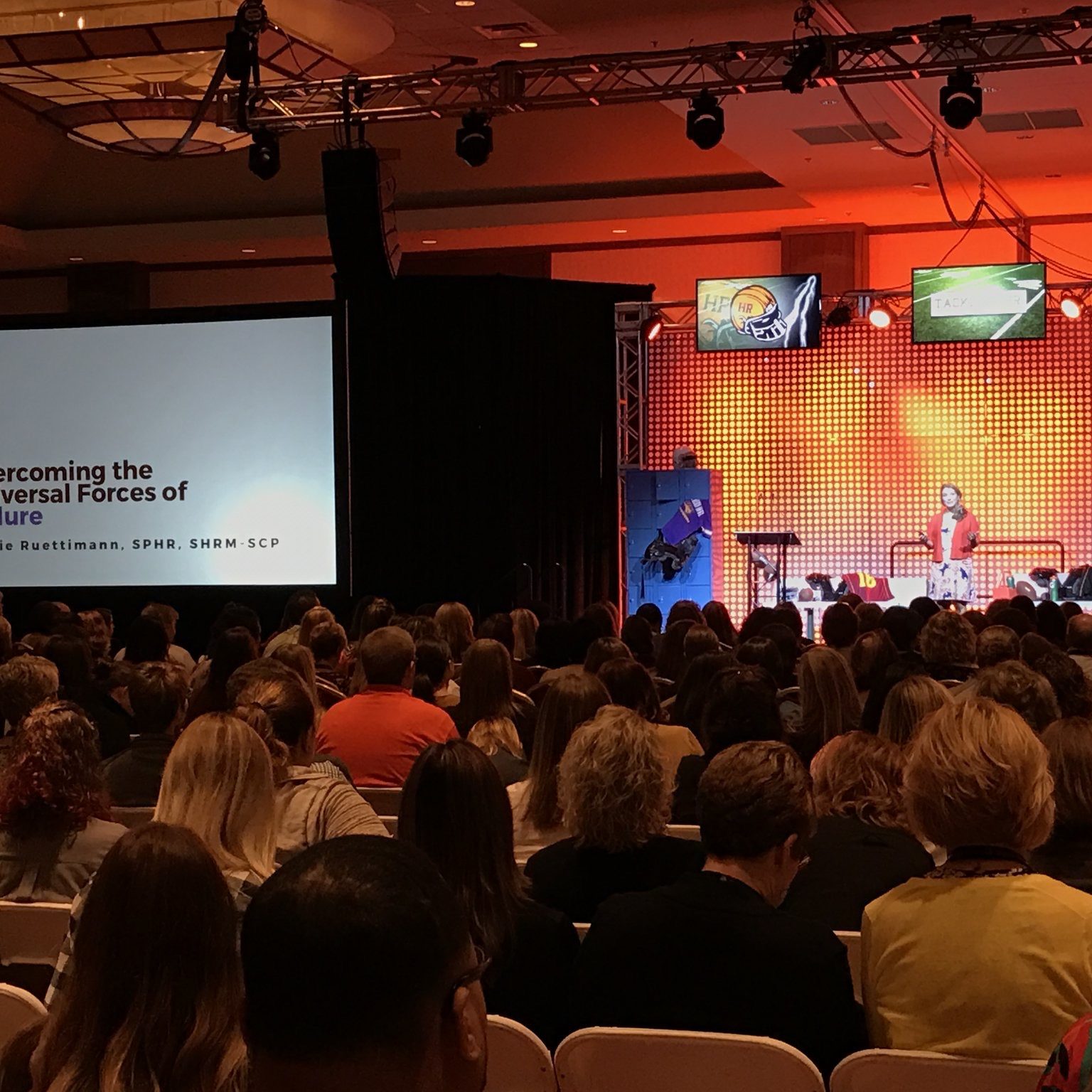

It’s HR conference season, which means I’m on the road talking to a bunch of human resources and recruiting professionals about failure.
I’ve taken a new approach to keynoting. I’m sharing bits and pieces of my personal story, which is a little scary for me. I talk about everything from my grandmother’s unintended pregnancy to my failed HR career as examples of how failure is like Kelly Clarkson: it can either kill you or make you stronger.
I also provide an overview of the science behind failure. There are cognitive reasons why people behave in specific ways when facing failure. It’s important to know how you (and the people around you) will react to failure. Your insights before the inevitable fall from grace will help you beat failure, and, ultimately, fail in more interesting ways in the future.
Anyway, I’m still working out the kinks with my personal story. And the risk of telling a personal story on stage is that people might not think it’s all that interesting. Or they might think I’m a narcissist.
(Both are true!)
In the past, I’ve always tried to pepper my talks with a lot of facts and case studies to make people think that I was a serious HR lady. You know what, though? Case studies are boring. Nobody remembers the science of failure when framed with a corporate narrative. They remember important concepts like defensive pessimism and strategic optimism if I tell them an authentic story that’s relatable — and if I mention my grandfather who repeatedly cheated on my grandmother until he finally left her, after 25 years, for a 19-year-old woman.
(Boom! Talk about the universal forces of failure in marriage!)
I’m really committed to this more personalized approach, which is why I’m taking a one-day course in Boston to improve my storytelling skills. It’s an investment, and I hope it pays dividends.
So if I see you in the next few weeks, please say hi and introduce yourselves. And please tell me your personal stories of failure. It’s always good to commiserate and laugh at how we keep doing the same dumb things over and over again.
One day, we might learn and do new dumb things. That would be great.
I read something interesting in the past few years that hypothesized that we humans are the advanced creatures that we are because we are born as helpless infants, when compared to almost every other animal that can walk and eat within hours of birth – that we are forced to learn to survive and it hones our problem solving skills, allowing us to dominate those other animals that “have it easy” at birth – this seems to lead to the general idea that we must fail to thrive. We need to fail to push ourselves to learn and grow.